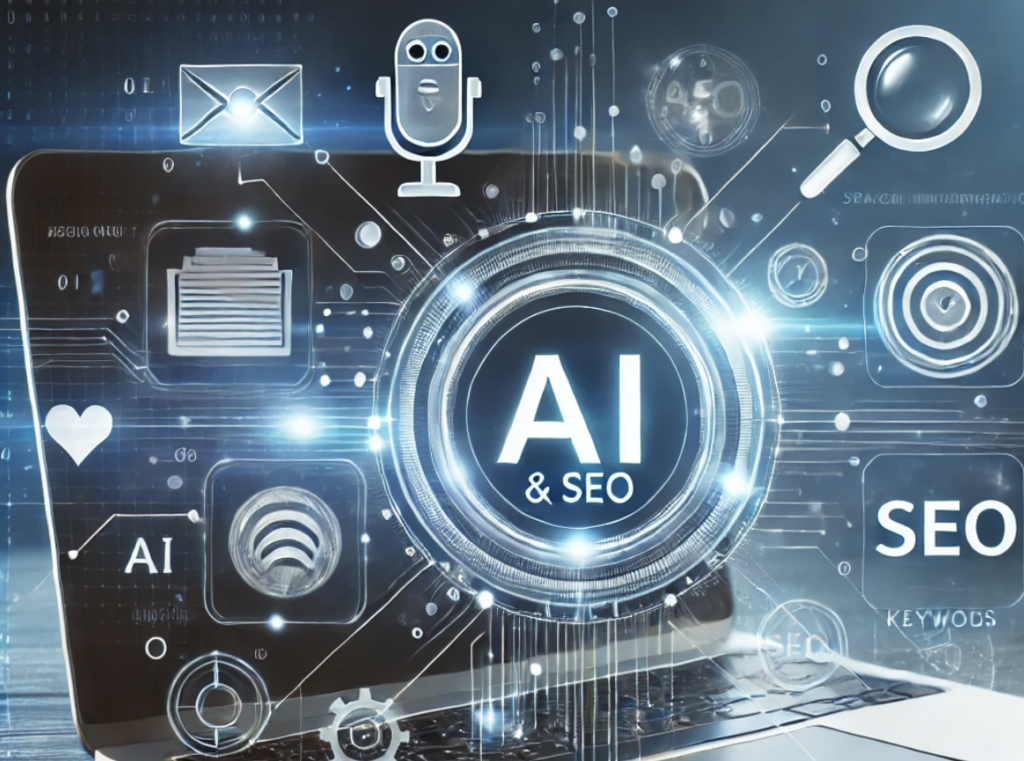With the rise of AI-generated content, many business owners, marketers, and content creators are asking: Does Google downgrade AI content? The short answer is no—Google does not penalize AI-generated content as long as it meets their quality guidelines. Let’s break it down.
Google’s Focus on Content Quality
Google’s algorithms have always focused on rewarding high-quality content, regardless of whether it’s created by a human or AI. If your AI-generated content is valuable, informative, and relevant, Google will likely treat it the same way as content written by a human. Here’s a closer look at the factors that determine how Google ranks content:
1. Quality
Google’s ranking systems are designed to prioritize content that provides real value to users. If your AI-generated content is well-written, well-researched, and genuinely helpful, it stands a strong chance of ranking well. Google rewards content that satisfies users’ search intent, which means your content needs to be clear, concise, and high-quality to avoid being downgraded.
2. Originality
Google places a strong emphasis on originality. Original content—whether AI-generated or human-written—tends to rank better. Plagiarized or duplicated content, on the other hand, will likely be penalized. Google rewards content that offers a unique perspective or new information, so make sure your AI-generated content is fresh and not a rehash of what’s already available online.
3. Relevance
For content to perform well on Google, it must be relevant to the user’s needs. Google aims to provide users with content that answers their queries, provides value, and meets their search intent. If your AI-generated content addresses the right topics and provides solutions to user problems, it’s more likely to rank well. AI can generate relevant content if guided correctly, so make sure it aligns with what your audience is searching for.
4. Authority
Google rewards content that shows expertise, experience, and trustworthiness—this is known as E-E-A-T (Expertise, Experience, Authoritativeness, Trustworthiness). Content that demonstrates these qualities is seen as more credible, and that’s what Google wants to surface in its search results. If your AI-generated content provides accurate, well-researched, and reliable information, it’s likely to pass the authority test and rank higher.
When Google Might Penalize AI Content
While Google doesn’t directly penalize AI content, it may penalize it if certain red flags are present. Here are some scenarios where AI content may be downgraded:
- Low-Quality Content: If the content lacks depth, clarity, or accuracy, it can be penalized. AI is only as good as the data and instructions it’s given, so ensure the output is valuable.
- Spammy Content: AI-generated content that is stuffed with keywords or over-optimized in an attempt to game the system can be flagged as spammy. Google actively targets manipulative tactics, and AI content is not exempt from this.
- Deceptive Content: Google’s algorithms are designed to detect misleading or deceptive content. If AI is used to create content that misrepresents information or tries to deceive users (e.g., clickbait or false claims), it can be penalized.
- Manipulating Search Results: AI-generated content created with the sole intention of manipulating search rankings, like generating massive volumes of content to artificially inflate backlinks, will not be tolerated. Google may devalue such content or apply penalties.
Best Practices for AI-Generated Content
To ensure that your AI-generated content ranks well and aligns with Google’s guidelines, here are some key best practices:
- Add a Human Buffer: After generating AI content, have a human review it. This allows you to tweak the content to ensure it meets your target audience’s needs and adds a personal touch that AI alone may not provide. A human buffer ensures the content is engaging, informative, and speaks to the user in a meaningful way.
- Make the Content Original and Relevant: Ensure your AI-generated content is fresh, unique, and highly relevant to what your target audience is searching for. Don’t rely solely on AI for idea generation—do research to ensure the content aligns with your audience’s interests.
- Avoid Keyword Stuffing: While it’s important to use keywords, focus on natural, user-friendly language. Google penalizes over-optimization, so avoid stuffing your AI content with excessive keywords in an attempt to rank.
- Focus on E-E-A-T: Make sure your content is well-researched, accurate, and trustworthy. Google is constantly evolving to prioritize content from credible sources, so ensure that your content reflects expertise and authority in your field.
- Make Content Engaging: AI content can sometimes lack the human touch, so be sure to inject personality, humor, and engagement where appropriate. Make the content something users will find interesting, helpful, and worth sharing.
Conclusion
Google does not penalize AI-generated content as long as it meets their quality guidelines. As long as your content is original, relevant, and of high quality, Google will treat it just as favorably as human-written content. The key to ranking well with AI content lies in ensuring that it provides value, aligns with user intent, and adheres to Google’s standards for originality, authority, and relevance. So, don’t be afraid to use AI tools for content creation—just make sure you’re following best practices and optimizing for quality!
